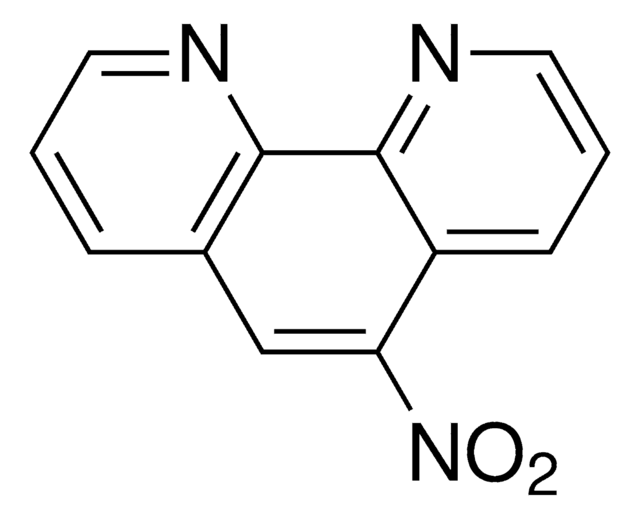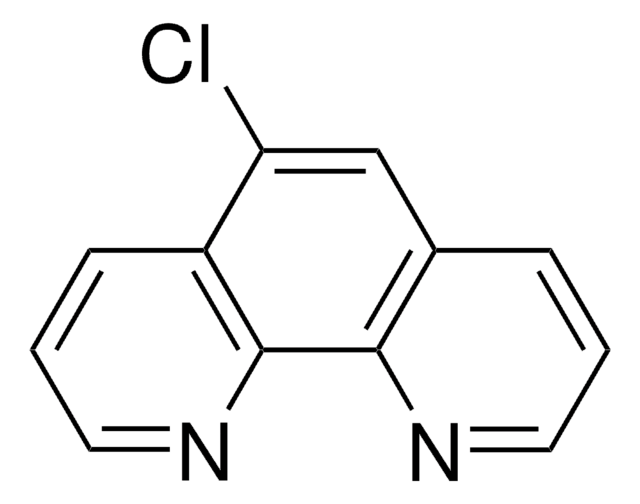496383
1,10-Phenanthroline-5,6-dione
97%
Synonym(s):
Stahl phd oxidant, phd
About This Item
Recommended Products
Assay
97%
mp
260 °C (dec.) (lit.)
SMILES string
O=C1C(=O)c2cccnc2-c3ncccc13
InChI
1S/C12H6N2O2/c15-11-7-3-1-5-13-9(7)10-8(12(11)16)4-2-6-14-10/h1-6H
InChI key
KCALAFIVPCAXJI-UHFFFAOYSA-N
General description
Application
Bioinspired Aerobic Oxidation of Secondary Amines and Nitrogen Heterocycles with a Bifunctional Quinone Catalyst
Signal Word
Warning
Hazard Statements
Precautionary Statements
Hazard Classifications
Eye Irrit. 2 - Skin Irrit. 2 - STOT SE 3
Target Organs
Respiratory system
Storage Class Code
11 - Combustible Solids
WGK
WGK 3
Flash Point(F)
Not applicable
Flash Point(C)
Not applicable
Personal Protective Equipment
Certificates of Analysis (COA)
Search for Certificates of Analysis (COA) by entering the products Lot/Batch Number. Lot and Batch Numbers can be found on a product’s label following the words ‘Lot’ or ‘Batch’.
Already Own This Product?
Find documentation for the products that you have recently purchased in the Document Library.
Customers Also Viewed
Related Content
he Stahl Lab focuses on the development of catalysts and catalytic reactions for selective oxidation of organic molecules, with particular emphasis on aerobic oxidation reactions.
Our team of scientists has experience in all areas of research including Life Science, Material Science, Chemical Synthesis, Chromatography, Analytical and many others.
Contact Technical Service













